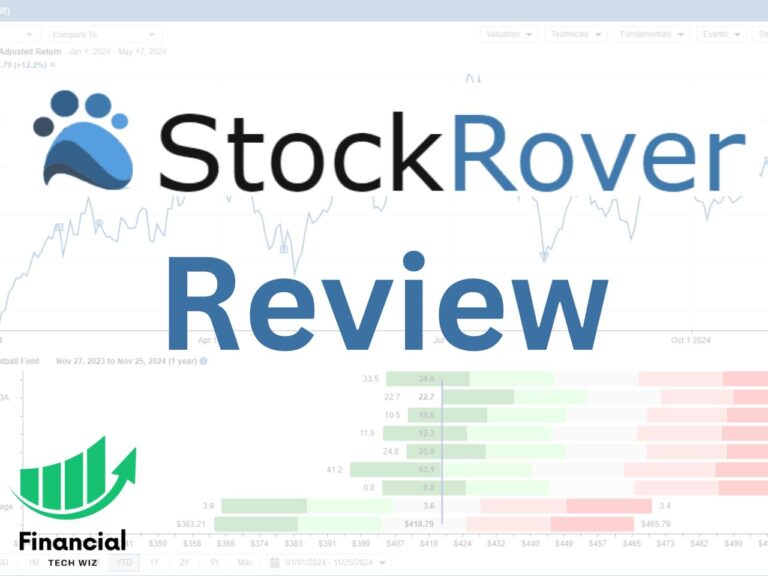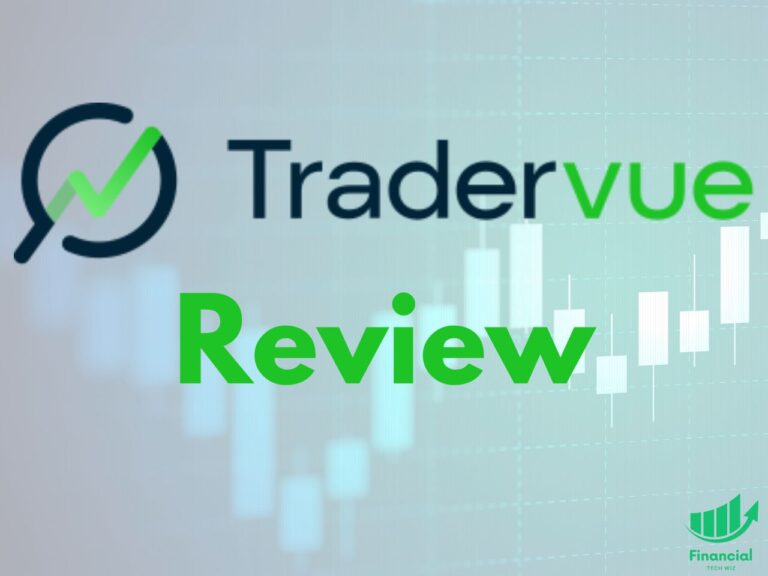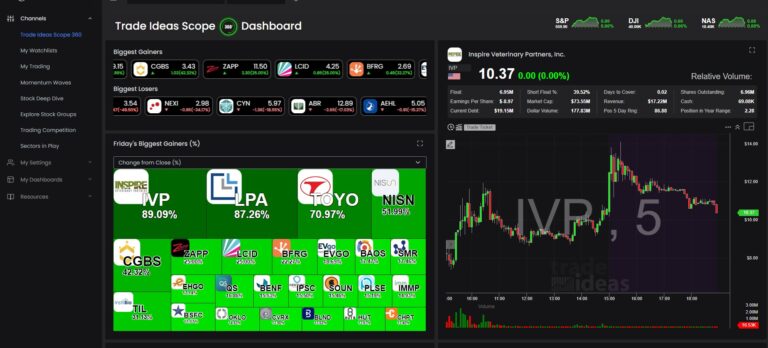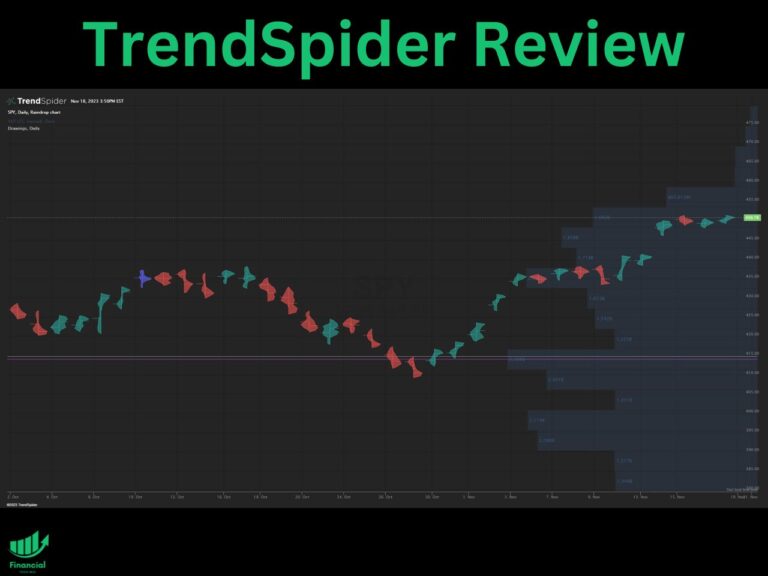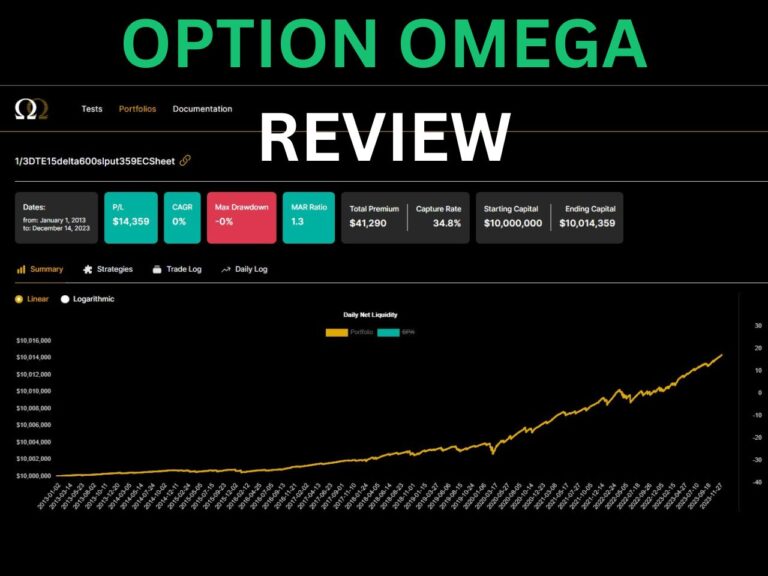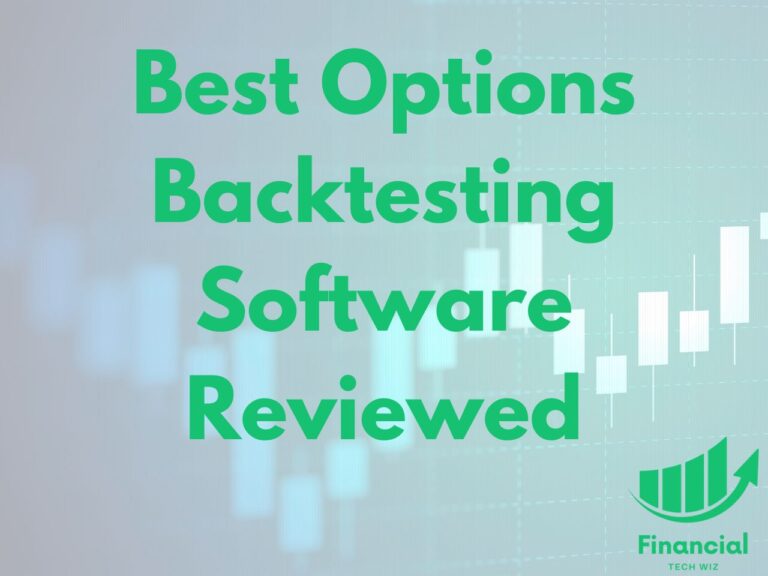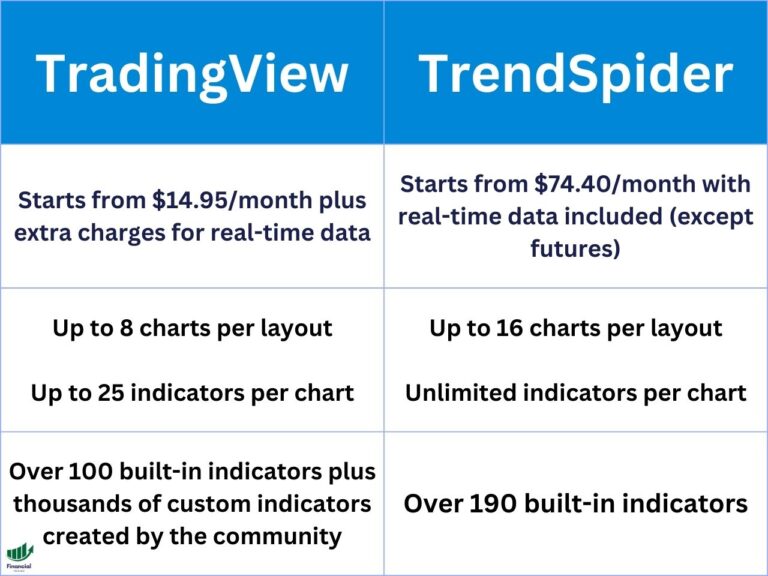Webull vs. thinkorswim: Key Features Compared
In this comparison, we’ll dissect the critical differences between Webull, a commission-free brokerage, and thinkorswim, a comprehensive trading platform under Charles Schwab, to help you decide which platform suits your trading needs best in 2025.
Key takeaways
- thinkorswim, now operated by Charles Schwab, requires a Schwab brokerage account and offers advanced charting with 400+ indicators, futures trading, and ThinkScript custom coding capabilities.
- Webull operates as an independent, commission-free broker with a modern mobile-first interface, cryptocurrency trading options, and $0 equity options commissions.
- While thinkorswim delivers superior tools for technical analysis and faster order execution, Webull appeals to cost-conscious traders with its zero-commission structure and user-friendly design.
- Both platforms offer paper trading, but thinkorswim provides more comprehensive educational resources and 24/7 customer support.
Platform at a Glance
Before diving into the details, here’s a quick comparison of the essential features that differentiate these two popular trading platforms.
| Feature | thinkorswim (Schwab platform) | Webull |
|---|---|---|
| Service Type | Downloadable desktop + web + mobile trading platform (requires Schwab/TDA brokerage account) | Full-service brokerage (desktop, web, mobile) |
| Stock/ETF Commissions | $0 | $0 |
| Options Commissions | $0.65 per contract (all options) | $0 per equity option, $0.55 per contract on index options |
| Futures Commissions | $2.25 per contract | — (not offered) |
| Futures Options Commissions | $2.25 per contract | — |
| Real-Time Data | Free with funded Schwab account | Free with funded Webull account |
| Tradeable Assets | Stocks, ETFs, Mutual Funds, Options, Index Options, Futures, Futures Options, Bonds | Stocks, ETFs, Options, Index Options, Crypto |
| Fractional Shares | Not supported (DRIP shares only) | Yes, no fee |
| DRIP | Yes, no fee | Yes, no fee |
| Margin Trading | Yes | Yes |
| Option Exercise / Assignment Fee | None | None |
| Insurance | SIPC/excess SIPC via Charles Schwab | SIPC |
| Premium Pricing Tiers | None (all tools free) | None |
| Mobile App Quality | Functional but dated; limited customization | Highly rated, intuitive, promotion-heavy |
| Notable Extras | ThinkScript custom coding, paper trading, deep scanners | Zero equity-option commissions, crypto trading, solid charting, paper trading |
Fees & Commissions Deep Dive
Understanding the complete fee structure is essential when comparing Webull vs thinkorswim. Both platforms have moved toward commission-free trading for stocks and ETFs, but there are notable differences in other areas.
Fees & Commissions Comparison
Webull vs thinkorswim — Which platform saves you more?
Stock & ETF Trades
Both Webull and thinkorswim offer commission-free trading on U.S. listed stocks and ETFs, although standard regulatory pass-through fees apply on sales.
Options Trading Fees
This is where the platforms diverge significantly. thinkorswim charges a flat rate of $0.65 per contract for options, applicable to both opening and closing trades across equity and index options. Webull offers commission-free trading on equity options, charging only $0.55 per contract for index options like SPX, RUT, and DJX.
For active options traders, this difference can add up quickly. A trader executing 100 contracts per month would pay $65 on thinkorswim versus $0 on Webull for equity options.
Futures & Futures Options (TOS only)
thinkorswim provides access to futures and futures options trading, charging $2.25 per contract for each. This fee is consistent for both futures and their options, plus applicable exchange and NFA fees. Webull does not offer futures trading.
Margin Rates Comparison
Webull offers significantly lower margin rates across all account tiers compared to Charles Schwab. For accounts borrowing under $25,000, Webull charges approximately 9.74% while Schwab’s rate for under $10,000 is 12.325%. This makes Webull more attractive for traders who frequently use margin.
Misc. Fees
Both platforms offer free ACH transfers, with wire transfers costing between $25 and $30. Importantly, there are no platform or data fees provided accounts meet minimum funding requirements.
Order-Execution Quality & Speed
Order execution can significantly impact trading profitability, especially for active traders. Here’s how these platforms compare in terms of fills and routing.
Order Execution Quality & Speed
Webull vs thinkorswim — Which platform executes trades faster?
Community Feedback
Traders on platforms like Reddit have noted a significant delay—up to 30 seconds—in option order fills on Webull, which can be detrimental in fast-paced trading scenarios. In contrast, thinkorswim users report quicker fills, particularly with high-volume instruments like SPX and SPY options.
Payment for Order Flow vs Direct Routing
Both platforms engage in payment for order flow (PFOF), which can impact execution quality. However, historical data from Schwab indicates a slight edge in achieving better price improvements compared to Webull.
Scalping Considerations
For traders specializing in scalping, thinkorswim is generally preferred due to its superior order execution speeds and access to Level II market data, despite its higher options commission. Webull’s zero commission structure appeals more to swing traders who prioritize cost savings over execution speed.
Speed Tips
To optimize trading speed on either platform, traders should consider using a stable, hard-wired internet connection, placing limit orders within the bid-ask spread, avoiding entry during volatile market openings, and utilizing each platform’s best routing technologies.
Trading & Research Tools
The tools available on each platform can make or break your trading strategy. Here’s a detailed comparison of what each offers.
Trading & Research Tools
Webull vs thinkorswim — Compare charting, screeners & analysis features
Charting Power
thinkorswim stands out with its advanced charting capabilities, offering over 400 technical indicators and tools such as ThinkScript for custom scripting, multi-time-frame analysis, and strategy testing. The platform allows traders to create and share custom studies, giving it an edge for technical analysts.
Webull, while less advanced, still provides over 50 indicators and several useful drawing tools. The charting interface is cleaner and more intuitive, making it suitable for traders who don’t need the full depth of thinkorswim’s offerings.
Screeners & Scanners
thinkorswim offers comprehensive screening tools like Stock Hacker and Option Hacker, which support complex conditional logic for detailed analysis. You can scan for stocks based on virtually any criteria, including custom ThinkScript conditions.
Webull’s screeners are more straightforward, focusing on fundamental and technical criteria without the depth offered by thinkorswim. However, they’re easier to use and sufficient for most retail traders.
Paper Trading
Both platforms provide paper trading options, allowing users to practice strategies without financial risk. thinkorswim’s paperMoney feature is available across desktop, web, and mobile platforms with realistic execution simulation. Webull supports both desktop and mobile paper trading environments.
News & Data
thinkorswim integrates additional features such as live CNBC feeds, a detailed economic calendar, and real-time quotes on futures, enhancing its research capabilities. Webull offers solid basics like analyst ratings and options order flow data, along with real-time cryptocurrency price updates.
Platform UX: Desktop, Web, Mobile
How a platform feels to use daily matters as much as its feature set. Let’s compare the user experience across different devices.
Platform UX: Desktop, Web, Mobile
Webull vs thinkorswim — Compare user experience across devices
Learning Curve & Customization
thinkorswim presents a steeper learning curve due to its comprehensive features and customization options, resembling a professional trading terminal. New users typically need several weeks to become comfortable with the interface, but the payoff is enormous flexibility.
Webull focuses on streamlined, user-friendly interfaces suitable for beginners and intermediate traders. Most users can start trading confidently within hours of opening an account.
Desktop experience
thinkorswim excels in a multi-monitor setup with capabilities like detachable windows, on-chart order entries, and a robust Active Trader DOM (depth of market) ladder. The platform can feel overwhelming on smaller screens but shines for traders with dedicated trading setups.
Webull’s desktop platform is cleaner and more modern-looking. It doesn’t offer a true DOM but includes a basic depth chart visualization. The platform is better suited for traders who prefer simplicity over extensive customization.
Mobile Experience
Webull’s mobile app is highly regarded for its intuitive design and ease of use, making it a preferred choice for traders on the go. The app has won awards for its user experience and offers nearly all the functionality of the desktop platform.
thinkorswim’s mobile app, while functional, is often considered less user-friendly, especially for complex options strategies. It can feel cluttered on smaller screens, though it does offer access to most desktop features.
Multi-Monitor & DOM
thinkorswim excels in a multi-monitor setup with capabilities like detachable windows and on-chart order entries, along with a robust Active Trader DOM. Webull does not offer a true DOM but includes a basic depth chart visualization, which can be a limitation for advanced traders.
Supported Markets & Order Types
The range of markets and order types available can determine whether a platform meets your trading needs.
Supported Markets & Order Types
Webull vs thinkorswim — Compare available assets and trading features
Equities (fractionals, DRIP)
Both platforms support fractional shares and dividend reinvestment plans (DRIP) at no additional cost. thinkorswim does not offer fractional shares outside of DRIP.
Options: single, spread, iron condor builders
thinkorswim provides a more robust environment for options trading, supporting complex strategies like spreads, iron condors, butterflies, and straddles with detailed analytical tools. The option chain displays Greeks, probability analysis, and customizable layouts.
Webull offers basic options trading capabilities suitable for less complex trades. While you can execute multi-leg strategies, the tools for analysis and planning are more limited.
Futures & Forex (TOS only)
thinkorswim provides access to both futures and forex markets, appealing to traders looking for diversity in trading instruments and strategies. You can trade micro futures contracts, making this market accessible to smaller accounts.
Webull does not support futures or forex trading, which limits its appeal for traders wanting exposure to commodities, currencies, or index futures.
Crypto (Webull only—BTC, ETH, 40+ coins)
Webull offers trading in major cryptocurrencies including Bitcoin and Ethereum, along with a broader selection of 40+ altcoins. This caters to the growing demand for digital asset trading from a single platform.
thinkorswim does not provide direct spot cryptocurrency trading. However, you can trade crypto-linked ETFs and Bitcoin futures contracts through the platform.
IPO & OTC Access (TOS limited OTC; Webull no OTC, occasional IPO program)
thinkorswim offers limited over-the-counter (OTC) trading options, whereas Webull does not support OTC trades but occasionally provides access to initial public offerings (IPOs).
Reliability, Security & Ownership
When your money is on the line, platform stability and security matter tremendously.
Schwab Migration Status
Following the migration of TD Ameritrade accounts to Charles Schwab in 2024-2025, thinkorswim users now log in using Schwab credentials, integrating seamlessly into the Schwab ecosystem.
Webull Corporate Background
Following the migration of TD Ameritrade accounts to Charles Schwab in 2024-2025, thinkorswim users now log in using Schwab credentials, integrating seamlessly into the Schwab ecosystem. Schwab is one of the largest and most established brokerages in the United States.
Webull, headquartered in New York City and clearing through Apex, is part of Fumi Technology, a company with roots in China, established in 2017. While this raises concerns for some traders, Webull is fully registered with FINRA and the SEC.
Outage History
Webull experienced notable trading halts during the 2021 meme-stock surge, while thinkorswim encountered data issues during the 2024 Consumer Price Index (CPI) release, highlighting potential reliability concerns.
Account Security
Both platforms ensure high levels of security with features like two-factor authentication, Face ID, and device-level encryption. They also provide SIPC insurance up to $500,000 for securities. Charles Schwab offers additional coverage through Lloyd’s of London, providing extra peace of mind for accounts with larger balances.
Customer Service & Education
Support quality can make a significant difference, especially when you encounter issues or need help with complex trades.
Support Channels
thinkorswim users benefit from comprehensive support via 24/7 phone lines, chat, and local branch access through Schwab. Webull provides support primarily through in-app chat and email, with service hours from 9 AM to 6 PM ET.
Learning Resources
thinkorswim offers an extensive range of educational materials, including in-platform courses, live events, and challenges through its paperMoney trading simulator. Webull, while offering educational webinars and tutorials, generally provides less in-depth material.
Third-Party Integrations
thinkorswim users can integrate with third-party platforms like DAS Trader PRO, enhancing their trading capabilities. Webull allows for integration with TradingView, enabling users to embed widgets directly into the Webull desktop platform.
| Webull | thinkorswim |
|---|---|
| Pros | Pros |
| $0 stock & equity-option commissions | Advanced charting & ThinkScript custom coding |
| $0.55 index options | Futures and forex access |
| Intuitive mobile app | Faster option fills |
| Crypto trading | Robust 24/7 support |
| Fractional shares | Comprehensive education |
| Lower margin rates | 100+ physical branches |
| Extended pre-market hours (4 AM) | Multi-monitor workspace support |
| Cons | Cons |
| Slower fills for day-trade options | $0.65 option contract fee |
| Promotional pop-ups | No crypto trading |
| No futures | Dated mobile UI |
| Limited customer support hours | Steeper learning curve |
| No OTC stocks | Higher margin rates |
| Fewer account types | No fractional shares |
Which Should You Choose? (Decision Matrix)
The right platform depends on your specific trading style, experience level, and goals. Here’s a quick decision guide:
Choose thinkorswim if you:
- Day trade or scalp and need fast executions
- Want to trade futures, forex, or options with complex strategies
- Prefer advanced charting tools and custom indicators
- Need comprehensive research and education resources
- Want 24/7 customer support and branch access
- Plan to use multi-leg options strategies regularly
Choose Webull if you:
- Prioritize low costs and zero-commission options trading
- Trade cryptocurrency alongside stocks
- Prefer a clean, modern mobile-first interface
- Are a beginner or intermediate trader
- Want fractional shares to invest small amounts
- Focus on swing trading rather than scalping
Hybrid approach: Some traders use both platforms strategically—thinkorswim for detailed research, charting, and analysis, and Webull for executing trades at lower costs. This approach lets you leverage the strengths of each platform.
Similar Platform Comparisons
FAQs
Is thinkorswim still part of TD Ameritrade?
thinkorswim started under TD Ameritrade, but after Charles Schwab’s 2023‑2024 acquisition of TD Ameritrade, the platform is now operated by Schwab. TD Ameritrade accounts have been migrating to Schwab, yet the thinkorswim name, features, and login experience remain intact—just backed by Schwab’s brokerage infrastructure.
Why does Webull charge $0.55 per contract for index options?
Webull offers zero commissions on equity and ETF options, but index options (e.g., SPX, RUT, DJX) clear through the OCC’s index‑options pricing schedule and route to different exchanges. The $0.55 fee covers routing and clearing costs that can’t be offset by payment‑for‑order‑flow rebates the same way stock options can. It’s still lower than the industry‑standard $0.65.
Does thinkorswim support crypto trading?
Not directly. thinkorswim lets you chart crypto futures (e.g., CME Bitcoin futures) and track crypto‑linked ETFs, but it does not provide spot cryptocurrency trading. For direct Bitcoin, Ethereum, or alt‑coin orders, you’ll need a separate broker or exchange (e.g., Webull, Coinbase).
Which platform fills faster for SPX 0DTE options?
User reports and internal execution‑quality data suggest thinkorswim generally delivers quicker fills and tighter price improvement on high‑liquidity index products like SPX 0‑day options—despite its $0.65 contract fee. Webull’s commission‑free model can create slight latency (often a few seconds) on large‑tick, high‑speed products.
Can I import custom indicators from thinkorswim into Webull?
Not natively. thinkorswim indicators are written in ThinkScript, a proprietary language. Webull has limited scripting (mainly for alerts) and doesn’t read ThinkScript files. To replicate a study in Webull, you’d need to manually re‑code it using Webull’s built‑in indicator parameters—or use a third‑party charting tool (e.g., TradingView) that supports custom Pine code.
Final Verdict
In weighing the pros and cons of Webull and thinkorswim, traders should consider their specific needs related to costs, tools, and execution speeds. thinkorswim is the clear winner for advanced traders who need professional-grade tools, futures access, and fast executions. Webull wins for cost-conscious traders, crypto enthusiasts, and those who prefer a streamlined mobile experience.
Both platforms offer unique advantages, and many serious traders benefit from maintaining accounts at both. We recommend testing each through their paper trading accounts to determine the best fit for your trading style before committing real capital.
Get Your Free Trading Resources
Grab the free trading journal template plus the same tools we use to stay organized, consistent, and objective.
- Free trading journal template
- Custom indicators, watchlists, and scanners
- Access our free trading community
Enter your email below to get instant access.
No spam. Unsubscribe anytime.

